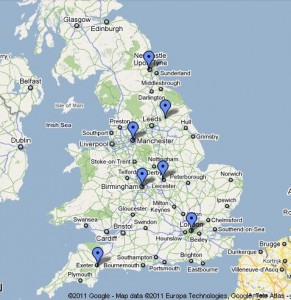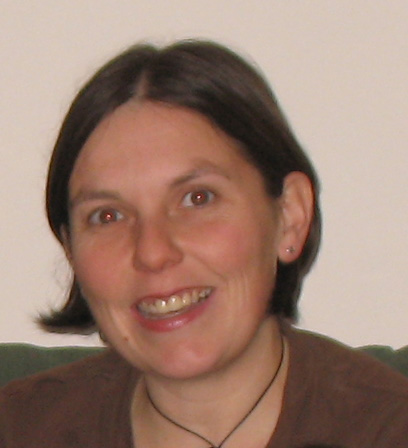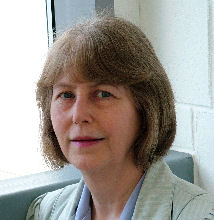Background
UKOLN has a long history of engagement with the cultural heritage sector. It dates back to its launch in 1977 when the British Library became the original and sole funder of UKOLN (funding from JISC started in 1992). In UKOLN’s early days our work focussed on library bibliographic data – in particular monitoring the accuracy and availability of catalogue records created by the British Library, and the development of Online Public Access Catalogues (OPACs).
From 1977 to 1996 UKOLN reported to the British Library Research and Development Department (BLRDD) and then, following changes at the British Library, to the British Library Research and Innovation Centre (BLRIC) from 1996 to 1999.
Those official links with the British Library changed in 1999, when the Library and Information Commission (LIC) became UKOLN’s co-funder. Following changes in Government departments and in Government policies, the LIC and the Museums and Galleries Commission (MGC) were merged in 2000 to form Re:source, which was then renamed the MLA in 2004. The MLA (Museums, Libraries and Archives Council) was established to coordinate policies across the cultural heritage sector, including libraries, museums and archives.
Work Funded by the MLA
The establishment of the Re:source followed by its renaming to MLA marked the beginning of UKOLN’s involvement with the wider cultural heritage sector.
The post of Public Library Networking Focus was funded between 1996 and 2004. The post was held by Sarah Ormes and then Penny Garrod, with Sally Lewis also working as a research officer. Early work included the development of the popular Treasure Island Web site and the subsequent Stories from the Web initiative which was designed to encourage children’s reading and creative writing skills. UKOLN carried out the LIC-funded public library Internet survey in 1995 and worked on the initiatives that saw public access to the Internet offered in all public libraries and the development of the People’s Network. UKOLN also ran four Public Library Web Managers workshops between 1999 and 2004.
From 2000 UKOLN started working more actively with the museum and archive sectors: for example, staff participated at a number of the international Museums and the Web and the UK-based Museums on the Web conferences.
Recently UKOLN has also run three workshop series for the MLA on Web 2.0 and the Social Web for practitioners working in the cultural heritage sector. The first series was held in 2008-9 and delivered by Brian Kelly. The second was delivered in 2009-10 by Marieke Guy while the final series took place during 2010-2011 and was delivered by Ann Chapman.
The Cultural Heritage Blog was started in January 2009. Initially most of the content was written by UKOLN staff with occasional guest posts. Since April 2010 most of the posts have been contributed by people working in the sector willing to share their experiences.
UKOLN also supported the sector through its Cultural Heritage Web site. This was designed as a source of information on digital information matters for the sector. An major element of this was the IntroBytes briefing papers series, which provides quick introductions to a wide range of topics; more than 80 papers are now available.
Although the core work for the MLA was delivered by Ann Chapman, Marieke Guy and Brian Kelly, UKOLN’s work for the sector was also supported by members of our Research and Development Team. Michael Day, head of the R&D team, for example, contributed to the MLA’s Principles Paper on “Supporting long-term access to digital material“. Other members of the R&D team contributed to the DPC (Digital Preservation Coalition) What’s New newsletter between 2002 and 2005.
Additional Work for the Cultural Heritage Sector
From June 2001 to March 2004 UKOLN, in conjunction with the AHDS, provided technical support and advice for the NOF-digitise Programme. This work included development of the technical standards document which described the key standards relevant to funded projects. We also organised several workshops covering various areas of best practices; provided technical support to projects and hosted the NOF-digi Technical Advisory Service Web site.
UKOLN also received funding from the EU and other sources to support R&D and dissemination activities for the wider cultural heritage sector. This included the EU-funded Exploit Interactive ejournal (with seven issues being published between May 1999 and October 2000) and the Cultivate Interactive ejournal (eight issues from July 2000 to November 2002) with research activities funded by the EU including the ARCO (Augmented Representation of Cultural Objects) Project.
Significant areas of work which helped to inform developments in the cultural heritage sector arose from activities which were funded from several agencies. The RSLP (Research Support Libraries Programme) was a national initiative which ran from 1999-2002, funded by the four higher education funding bodies. UKOLN’s RSLP Collection Description work developed a collection description metadata schema and associated syntax together with a simple Web-based tool to enable projects to describe their collections.
The CD (Collection Description) Focus post was subsequently funded from 2001-2004 to support the NOF Digitisation of Learning Materials Programme, Peoples Network Programme, Resource Regional Cross-Domain research projects, British Library Co-operation and Partnership Programme and a range of JISC projects. This work helped to improve coordination of activities on collection description methods, schemas and tools, with the goal of ensuring consistency and compatibility of approaches across projects, disciplines, institutions, domains and sectors.
Currently the JISC-funded LOCAH Project is engaging with the archives and libraries sector. This project aims to make the Archives Hub and Copac data available as structured Linked Data, for the benefit of education and research. Adrian Stevenson, the LOCAH project manager, is a member of the organising and steering committee for the forthcoming International Linked Open Data in Libraries, Archives and Museums Summit (LODLAM).
Another current activity to mention is UKOLN’s involvement with the RDTF (Resource Discovery Taskforce), a significant initiative funded by the JISC and Research Libraries UK for which ”The purpose of the Taskforce is to focus on defining the requirements for the provision of a shared UK infrastructure for libraries, archives, museums and related resources to support education and research“.
UKOLN has provided the JISC representative to the W3C Library and Linked Data Incubator group. This group aims to help increase global interoperability of Library data on the Web by bringing together people involved in Semantic Web activities – focusing on Linked Data – in the library community and beyond, building on existing initiatives and identifying collaboration tracks for the future. A report on this work will be published by June 2011.
The Future
UKOLN’s core funding from the MLA officially finishes on 31 March 2011. We have been pleased to have such a long-standing involvement with the cultural heritage sector over the past 34 years. But despite the announcement of the abolition of the MLA our engagement with the sector will continue including our involvement with the Strategic Content Alliance, the LOCAH Project and our shared research interests with the British Library.




